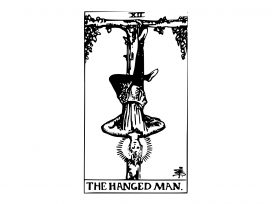Karl Palmås
is a sociologist at Chalmers University of Technology, Gothenburg.
Articles

In the emergent “panspectric” order, human society is seen in terms of “information traffic”. It is not the actions of individuals that are observed, as in the Foulcauldian panopticon, rather those of the mass. Degrees of corporate and state surveillance are unprecedented; yet panspectric subjectivity also brings new forms of resistance.
Panopticism is waning; panspectrocism is the nascent social diagram that organizes our lives. Heineken and Wal-Mart use pattern recognition and computer-assisted predictions of future behaviours to secure their markets. Google, the panspectric corporation par excellence, tells us that the company wants to know what you’ll want to do tomorrow. This brings renewed poignancy to Gabriel Tarde’s contagion-centric thought, write Kullenberg and Palmås.



